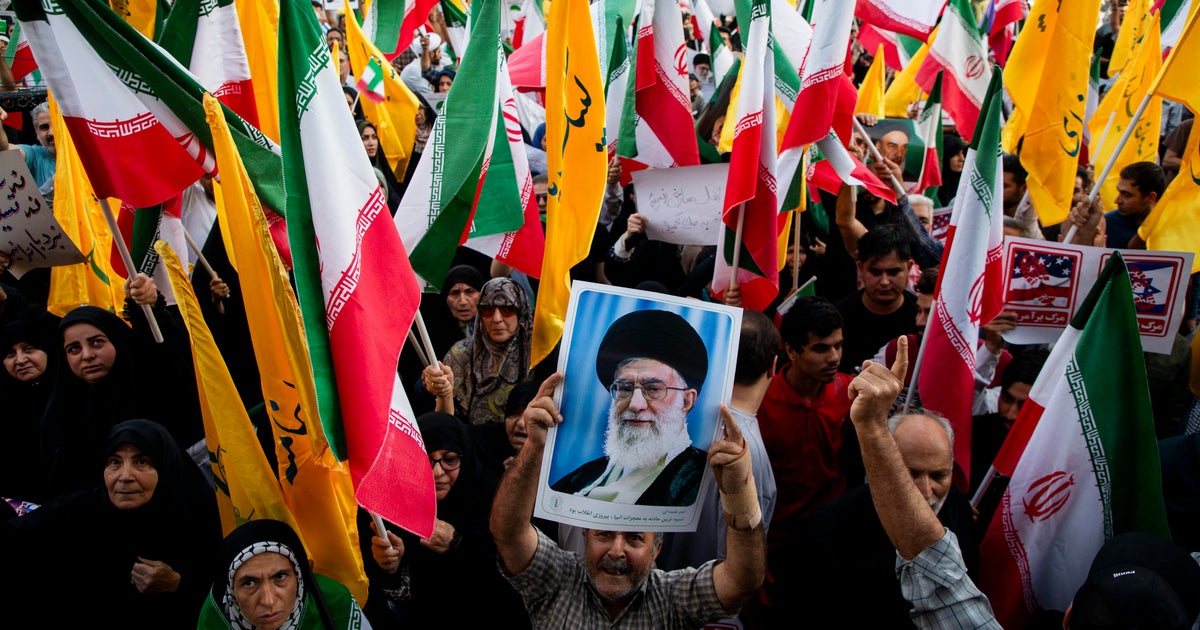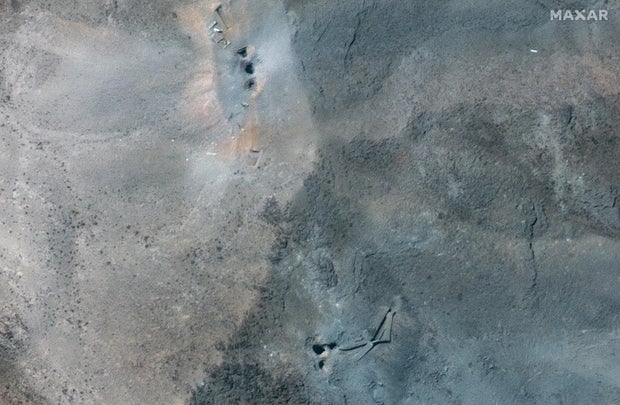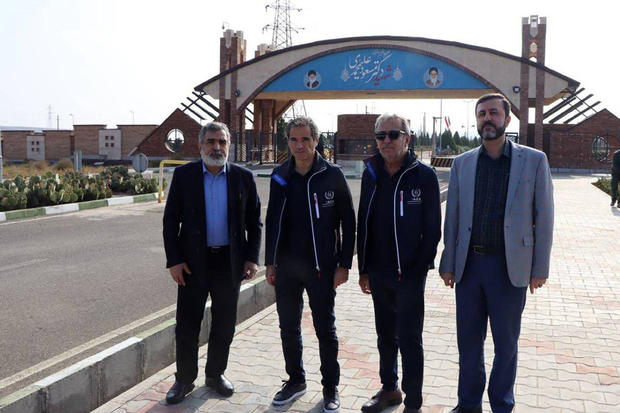
“I offer my congratulations on the victory over the fallacious Zionist regime,” a message posted Thursday on Iranian Supreme Leader Ayatollah Ali Khamenei’s X account declared. Another post added the bold claim that Israel’s government “was practically knocked out and crushed under the blows of the Islamic Republic.”
In a recorded video address to his nation — his first public remarks since the U.S.-brokered ceasefire with Israel took effect on Tuesday — Khamenei went further, suggesting a “large number of military and other targets” in Israel had been targeted by Iran’s missiles.
They may have been targeted, but in reality, Iran’s 12 days of missile launches saw relatively few rockets evade Israel’s air defenses. A total of 28 people were killed, and none of them have been identified as government officials, but rather civilians killed when missiles struck apartment buildings and cities.
Israel’s strikes on Iran killed at least 30 military commanders, on the other hand, and, in combination with the U.S. strikes over the weekend, “obliterated” the country’s nuclear program, according to President Trump. The U.S.-based group Human Rights Activists in Iran, which relies on a network of sources in the country, said Wednesday that the strikes had killed at least 1,054 people in Iran, including a total of 318 military personnel.
Satellite image ©2025 Maxar Technologies
Khamenei also claimed Iran had given “the U.S. a big slap in the face” by attacking the Al-Udeid Air Base in Qatar, which is home to thousands of American forces.
But none of the roughly dozen missiles Iran fired at the sprawling base hit it. They were intercepted, despite the ayatollah’s assertion of “lots of damage” to the site.
Assessing Iran’s nuclear program, and cooperation with the IAEA
While full assessments of the damage inflicted are still being compiled, the heads of two U.S. intelligence agencies said Wednesday that “new” intelligence indicated the Iranian nuclear enrichment program was likely set back by “years.” Israeli Prime Minister Benjamin Netanyahu’s office said earlier Wednesday that the country’s own intelligence assessment showed Iran’s nuclear program was put back “many years.”
Khamenei offered a very different take on Thursday — again, without any specifics or evidence. He claimed the U.S. had joined in Israel’s strikes “as it felt if it did not do so, the Zionist regime would get totally annihilated, so they entered the war to prevent this.”
“They did not manage to do anything important to our nuclear facilities,” he claimed, adding that Mr. Trump had “overplayed the whole thing.”
Iran, in the wake of the ceasefire, has adopted legislation that will effectively forbid the country’s government from cooperating in any way with the International Atomic Energy Agency. The United Nations’ nuclear watchdog agency has for decades been the only outside entity given access to Iran’s nuclear facilities, for monitoring purposes, and it has experts still in the country.
Iranian state media said Thursday that the legislation was approved by the senior clerics of the Guardian Council and thus had the “weight of law.” Khamenei, who has the ultimate say on all matters in Iran, did not mention the IAEA in his video address on Thursday.
On Thursday, IAEA Director General Rafael Mariano Grossi told a French news podcast that the agency’s assessment, based largely on photographic evidence and its unique and deep familiarity with Iran’s nuclear sites, was that the U.S. and Israeli strikes had caused “very significant physical damage to three sites: Natanz, Isfahan, and Fordo, where Iran had concentrated most of its activities related to uranium enrichment and conversion.”
Handout/Atomic Energy Organization of Iran/AFP/Getty
He said he was still in communication with senior Iranian officials and had suggested a meeting with the country’s foreign minister, “to begin evaluating the arrangements for the [IAEA] inspectors’ return to the [nuclear] sites.”
Grossi said he had yet to receive any reply, noting “some tension right now” between the agency and Iran’s leadership, given “political voices in Iran who believe the agency hasn’t been impartial.”
The IAEA chief said he was “enormously” concerned by the Iranian government’s decision to halt cooperation with the IAEA.
“The agency’s presence in Iran is not some kind of generous gesture. It is an international responsibility. Iran is a member of the Non-Proliferation Treaty and therefore must have an inspection system. It is a legal obligation from the point of view of international law, which cannot be suspended unilaterally,” Grossi said. “I hope that will not be the case, because otherwise we would be on the verge of a new major crisis.”
Anxiety in Iran fueling the ayatollah’s claims?
Khamenei’s remarks on Thursday were heavy on rhetorical flourish and virtually devoid of any facts, and they may have been aimed more at Iran’s people than the wider world.
Iran’s theocratic rulers, who swept to power with the 1979 Islamic Revolution that toppled a pro-Western government led by the royal family of the shah, have long maintained tight control over all media in the country, and many Iranians have little access to outside information.
NEGAR/Middle East Images/AFP/Getty
Still, especially among younger, more tech-savvy generations, there is an understanding of the degree to which Iran’s people do not enjoy the freedoms that many other countries guarantee — and it has led to several popular protest uprisings over the last decade. All of them have been brutally quashed by the authorities, but Netanyahu called very quickly after Israel started bombing Iran for new anti-government protests in the country, urging Iranians to take advantage of the attacks, which he said had put the ayatollah in his weakest position ever.
Khamenei has yet to be seen live or in public since the ceasefire, and his precise whereabouts remained unclear Thursday after the pre-recorded video message was released.
While the ceasefire enabled Israelis to revel on Wednesday in a return to normalcy, with the lifting of 12 days of war-time security measures, in Tehran, anxiety still appeared rife.
CBS News correspondent Imtiaz Tyab and his team were granted Iranian visas to enter the country earlier in the week, and they were the first American broadcast network to enter Tehran since the war began. But it took them an arduous journey through arid landscapes and across the border from Turkey to reach Iran’s capital, as the country’s airspace had been closed.
Tyab said the Iranian capital felt very different this week compared to his previous visit about five years earlier, when, despite the government’s authoritarian control over daily life, it was a vibrant metropolis. On Thursday, despite the truce, most businesses remained shut, and the sense of nervousness was palpable.


